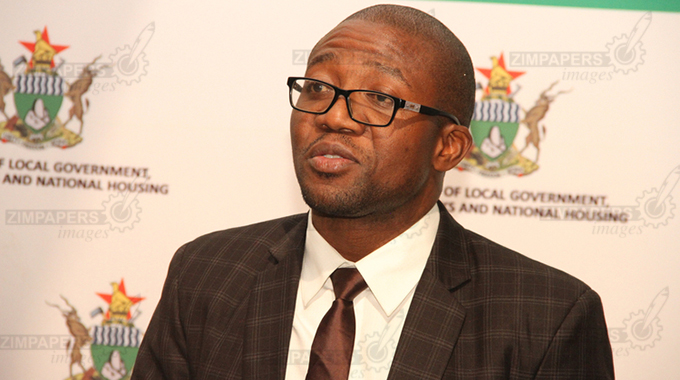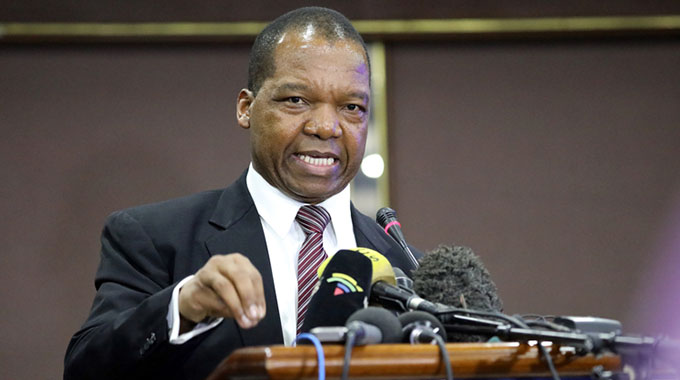Zim to conduct second SDGs review

Herald Reporters
Zimbabwe will for the second time conduct a voluntary national review of the Sustainable Development Goals (SDGs), a process meant to facilitate the sharing of experiences, including successes, challenges and lessons learnt.
This was revealed by the United Nations Economic Commission for Africa (UNECA) director of African Centre for Statistics Mr Oliver Chinganya during a Press conference held in Harare recently.
Mr Chinganya said Zimbabwe’s decision to conduct this voluntary process signified the importance the country attached to the SDGs.
“One of the things that we are pleased with is that Zimbabwe is going to be engaging in what we call voluntary national reviews and it is going to be doing that for the second time, and that shows the importance that they attached to SDGs,” said Mr Chinganya.
The country’s first voluntary national review of the SDGs was done in 2017 from which it was noted that the country was making progress in some areas that include eradicating poverty, hunger, promoting gender equality and good health and improving infrastructure.
However, challenges that included limited fiscal space, low per capita, growing urban population and insufficient timely data for some indicators were also noted.
As part of its follow-up and review mechanisms, the 2030 Agenda for Sustainable Development encourages member states to conduct regular and inclusive reviews of progress at the national and sub-national levels, which are country-led and country-driven.
These national reviews are expected to serve as a basis for the regular reviews by the high-level political forum (HLPF), meeting under the auspices of ECOSOC.
As stipulated in paragraph 84 of the 2030 Agenda, regular reviews by the HLPF are to be voluntary, state-led, undertaken by both developed and developing countries, and involve multiple stakeholders.
SDGs were adopted by all United Nations member States in 2015 as a universal call to address key challenges affecting the world.
Although Zimbabwe committed to undertake all the SDGs, its special focus is on economic growth, energy, agriculture, food security and nutrition, infrastructure, water and sanitation, financing, health, education, combating climate change, gender and women empowerment.
Meanwhile, the 2019 Zimbabwe Youth Sustainable Development Goals Summit kicks off today at the Harare International Conference Centre, with youths from all walks of life expected to attend
Zimbabwe Youth Development Goals chairman Mr Bongani Mangwana told The Herald that this year’s summit will run under the theme: “Youth as Drivers of Sustainable Development.”
Industry and Commerce Minister Mangaliso Ndlovu is expected to be guest speaker. Mr Mangwana urged the youths across the country to attend the summit.
“High-level plenaries featuring thought-provoking speakers from academia, youth experts, development practitioners, policymakers, motivational speakers, and civil society organisations on various summit themes will be attending,” he said.
“We are calling on all the youths in the country to come for the noble cause because youths cannot afford to be beneficiaries of sustainable development, but rather drivers.”
Mr Mangwana said youths should also participate in fulfilling the 2030 agenda.
“This is an important event towards Agenda 2030, as the youths are the majority in the country, and our nation must come first before anything so that we can all pull in the same direction to achieve sustainable development,” he said.
He also pointed out that it was essential to establish centres to help in the training and dissemination of information.
“We will also be launching the Zimbabwe Youth SDG taskforce and technical committee at national level, and then we will cascade and make structures in provinces and districts to push for sustainable development in devolution,” he said.
Sustainable Development Goals (SDGs) are a follow-up effort to Millennium Development Goals (MDGs), which were in effect from 2000 to 2015.
At the turn of the century in September 2000, leaders of 189 countries assembled at the UN Headquarters in New York and signed the historic Millennium Declaration.
“This established a global partnership of countries and development allies dedicated to achieving a set of eight voluntary development goals called Millennium Development Goals (MDGs) by the target date of 2015.
The signed MDGs represented the ambitious moral and practical obligation to improve people’s lives world over.








Comments